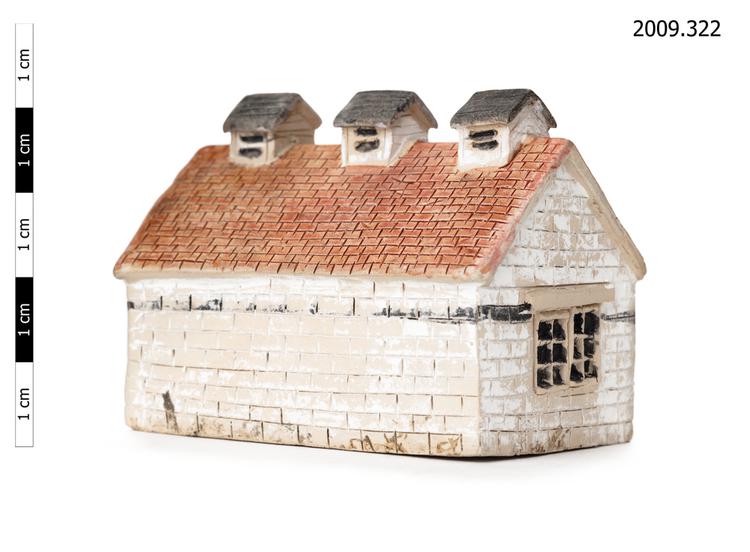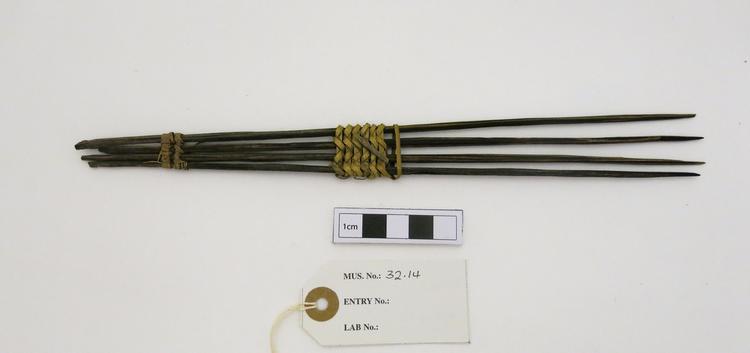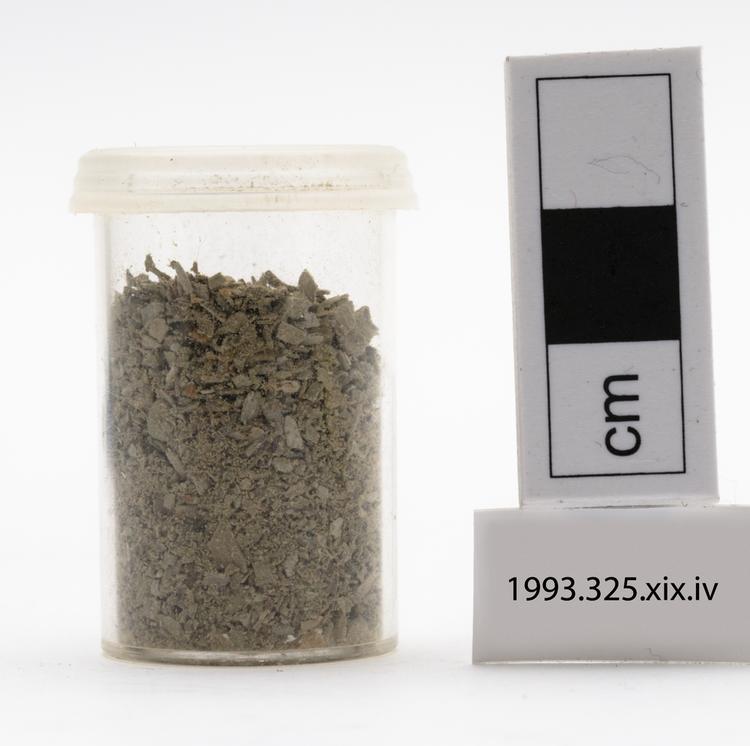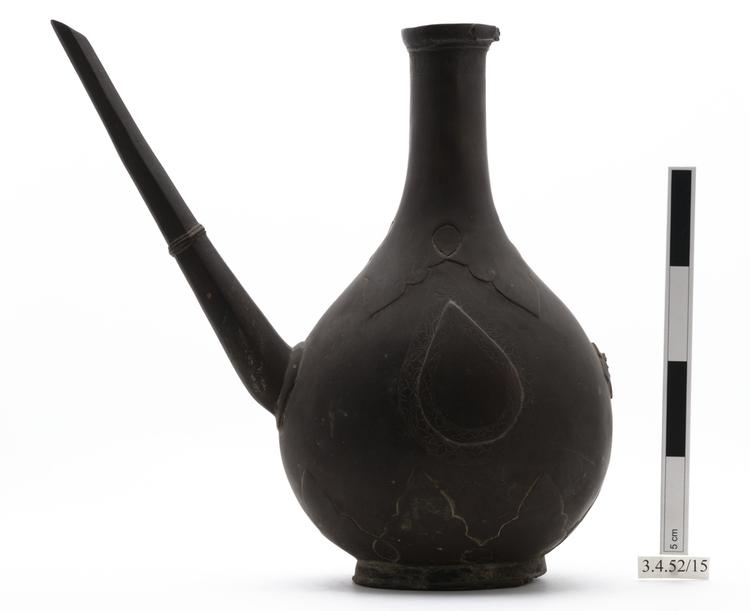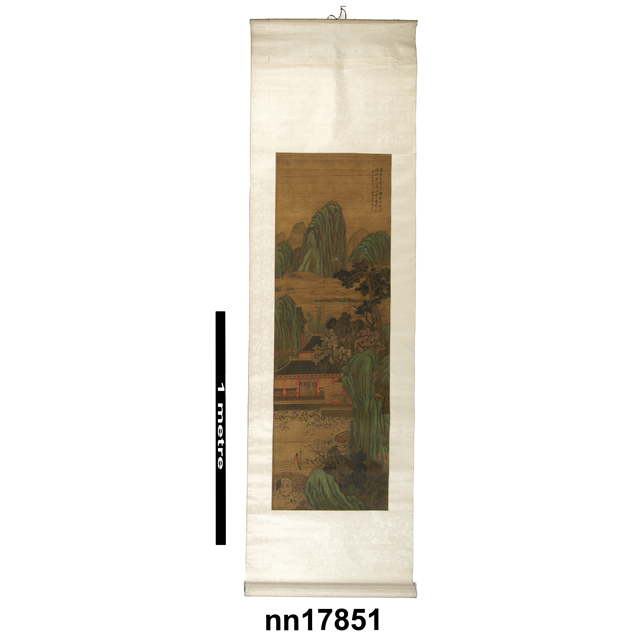
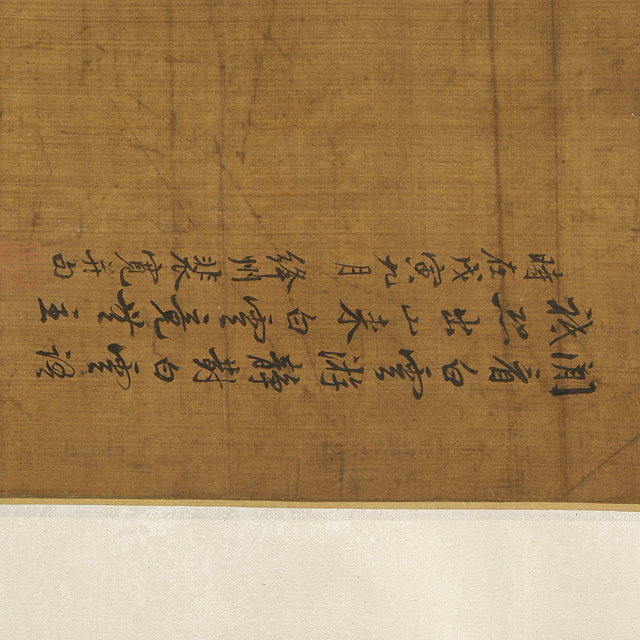
Painted scroll depicting two men, a building, lake and mountains. The three columns of the inscription in the upper right hand corner represent a poem composed by a civil official, Pei Kuan, (in Chinese: 裴寬, A.D. 679-754) in the Tang dynasty. Reading from right to left, the first column reads: 閒看白雲游, which translates as ‘gazing leisurely at the floating white cloud’; below it reads 靜對白雲語, which means ‘I whisper to the cloud’. The second column reads: 祇恐出山來, meaning ‘I am afraid that when it comes up over the mountain ’; below it reads: 白雲竟無主, which translates as ‘the cloud might lose its master’. The cloud in the poem is thought to be a metaphor for Pei Kuan himself, with the colour white symbolising his pure mind and honesty. The ‘master’ here probably refers to the emperor who has good judgement to spot talented people. So a further interpretation of the last two sentences might be: ‘even if I decide to devote myself to my country, I might lose the emperor’s trust and there will be no other people in higher positions to help me prove my loyalty’. The last column indicates that this poem was composed in Jiang Zhou (in Chinese: 絳州, now located in Shanxi province, China) in September A.D. 738 (when the poet was 59 years old), just before he was demoted by the emperor Xuan-Zong of Tang (in Chinese: 唐玄宗, also commonly known as Emperor Ming of Tang, A.D. 685-762).
Pei Kuan was well-known as an honourable, dutiful and uncorrupted civil official in his time. Most local residents greatly appreciated his contribution to their area. However, some other officials who were jealous of his achievements drove a wedge between Pei Kuan and the emperor, which led to his demotion. Therefore, this poem somehow shows how things turned out as he predicted.



